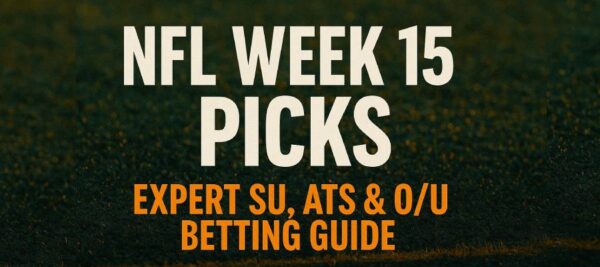One of the most fundamental and arguably most-used tools for successful sports handicapping is betting trends. From functioning as the starting point of most sports betting analysis to highlighting first-hand information about the strength of teams/athletes or telling us about the public betting action in sportsbooks; betting trends are virtually the adhesives that hold the world of sports betting together. More importantly, these trends can be used to predict outcomes in online sports betting. But before we get to using trends to predict outcomes and the value in sports, let’s start by looking at the common types.
Using Trends to Predict Outcomes in Sports Betting
Types of Sports Betting Trends
Situational Trends: As suggested by the name, situational trends essentially reflect how teams or athletes perform under given situations.
This includes how teams perform at home vs. road, how a team plays on a back-to-back night, how an MLB team performs against a right-handed pitcher etc.
Technical Trends
Technical trends are more-or-less similar to situational trends, but their application is more advanced or expanded, with the main basis being their knack for using comparison.
For example, a technical betting trend might measure the performance of pitchers in baseball with a given winning percentage, comparing the similarities and differences between them rather than just looking at the general performance of pitchers as one entity.
Betting Data Trends
In this category of trends, reference is made to those trends that offer informational value that is mostly focused on how bettors are wagering on a given event.
For example, upon the release of the Super Bowl odds after the conference finals, sportsbooks will have percentages such as “65 of bettors are backing the favorite in the money line against 25 percent who are backing the underdog in two days of action”.
The purpose of these betting data trends is to guide bettors about where the betting public is pounding and where the smarts are backing, giving you an idea of which sides looks to offer best value.
Finding Betting Trends to Predict Outcomes
As glimpsed by the explanations above, betting trends can be used in a variety of ways, depending on the type of trend.
As a general rule, though, betting trends should be used as an additional tool to inform, complement or supplement a comprehensive betting approach or matchup analysis–and not to replace it entirely.
For instance, if you find that a certain team tends to play poorly on the road, don’t take the information at face value and just bet against that team when it is playing on the road; instead, research into the reason behind its tendency to play poorly on the road.
Is it pure coincidence? Is it because of fatigue? Is it something to do with fear of the opposing crowd? Does the team get enough rest during the travels?
Once you find the underlying meaning of the trends, you can then find a way of applying it appropriately in your current bets and even in the future.
On a good number of times, you will also find betting trends that contradict each other. In such an instance, more research is an only way you can find which trend points towards the right sports betting picks.
Oh, and don’t forget that there are instances that the betting trends are obsolete or totally unrelated to how a team is likely to perform currently.
For example, an MLB hitter may have been poor in the previous season when facing left-handed pitchers, but offseason changes helped solved his issues, making him a better hitter under such a circumstance.
Handicapping this season’s games using such past statistics will easily mess up your predictions.
Conclusions
Different trends apply differently to different games, so don’t try to fix a trend in a situation that it doesn’t apply.
Also, you should keep in mind that most betting trends are very short-lived in nature, meaning you must be ready to adjust and adapt to new trends when they come.
Moreover, be sure to avoid the tendency of simply looking at trends to validate your opinion about certain preconceived outcomes, as is often done by beginners.
This is because, sports betting is a very complex discipline, necessitating the circumspect consideration of all the available data and information, and then having an open mind that allows for the making of well-informed decisions about sports betting outcomes.
Welcome Bonuses from MyBookie : DOUBLE YOUR FIRST CRYPTO DEPOSIT!
Sports Betting Odds
Betting Online Casino
| Playing Blackjack or Poker |
| Understanding Live Casino |
| Best Casino Online Games |






